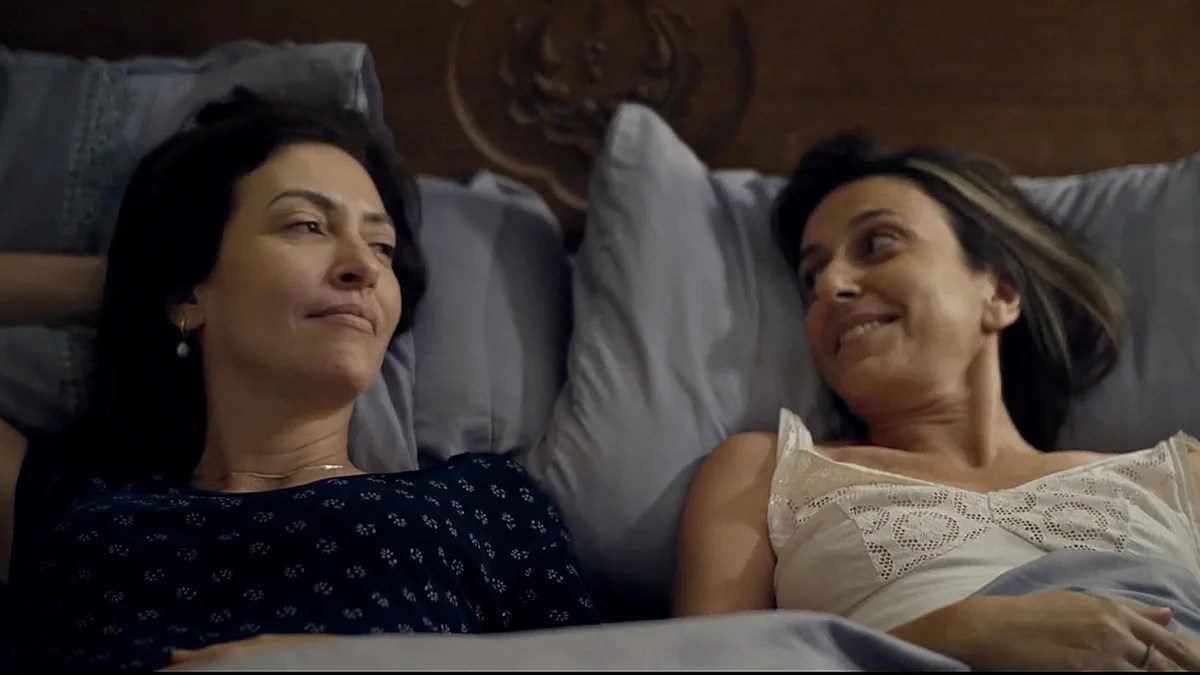Weddings are one of the most organic settings for storytelling in movies. They combine romance with drama, high tension and even comedy. Director Ayelet Menahemi’s “Seven Blessings” manages to whip all those things together and lots more, in a film that begins with the nuptials before chronicling seven celebratory meals with an extended group of family and friends.
For TheWrap’s 2023-24 International Screening Series, Menahemi was joined along with two of the movie’s actresses, Reymonde Amsallem and Eleanor Sela to take part in a lively conversation about the film. Amsallem and Sela, real-life cousins who here play sisters, also cowrote the screenplay, and Sela serves as one of the picture’s associate producers.
“Seven Blessings” is the Israeli submission for this year’s Best International Feature category at the Oscars. Israel has been nominated 10 times for the award, most recently for 2011’s “Footnote.”
Menahemi’s movie begins with a wedding scene that is energetic and spirited enough to suggest a comic treatment. But the story then deepens and expands, as family secrets and long-repressed traumas begin to emerge. The film stages these events in tight dining rooms with two dozen characters at a time. The dialogue overlaps, but audiences can easily follow the action and the revelations, thanks to Menahemi’s sharp, economical direction with Amsallem and Sela’s finely tuned script.
Those elements yielded one of the movie’s boldest flourishes – a seven-minute-long argument in a bedroom between Amsallem and Sela, which unfolds without a single edit. The scene was perfected during a run-though in Menahemi’s own bed, shot by the director on her iPhone.
“I was so natural,” Sela said, “because all the process of the writing all the relationship between me and Reymonde. Everything got into this moment. And [Menahemi] said, ‘OK, I think this is it. I don’t need to touch it.’ It was like magic, really.”
The director added, “If you if you watch that iPhone recording, which was one take, it’s almost similar to the final take that we chose for the film. Really, there’s not much difference. They were so good.”
Amsallem, the film’s lead actress, who plays the wedding’s bride, explained, “It has the real essence of our own relationship. And it seems like when we did it, we prepared ourselves for this moment for so many years. OK, maybe we learn the text by heart for a couple of minutes. But we didn’t prepare, we didn’t need the preparation because we had it all inside. We were already cooked with our relationship inside the characters.
“We’d built ourselves towards this moment,” Amsallem continued. “And it was exactly what we wanted, all this emotion, switching from hatred to disappointment to longing to love to need to compassion. Everything inside, and we got so many compliments for this scene. So I believe that we managed to pull it through.”
Elsewhere in video interview, which can be viewed above, Menahemi speaks about some of her filmmaking influences in terms of the authentic use of cross-talking dialogue, pioneered by directors like John Cassavetes and Robert Altman. “And Jason Katims, who did ‘Friday Night Lights’ and ‘Parenthood,’” she said, “which had overlapping [dialogue] like crazy, which you weren’t used to seeing on television.”
Amsallem, Sela and Menahemi also speak about the honor of being Israel’s Oscar selection, especially during a time of turmoil for the nation. The movie was the winner of 10 Ophir Awards (the Israeli Academy Awards), including prizes for Menahemi (Best Director), Amsallem (Best Actress) and Amsallem and Sela (Best Screenplay).
For the whole video interview, click over to YouTube here.

